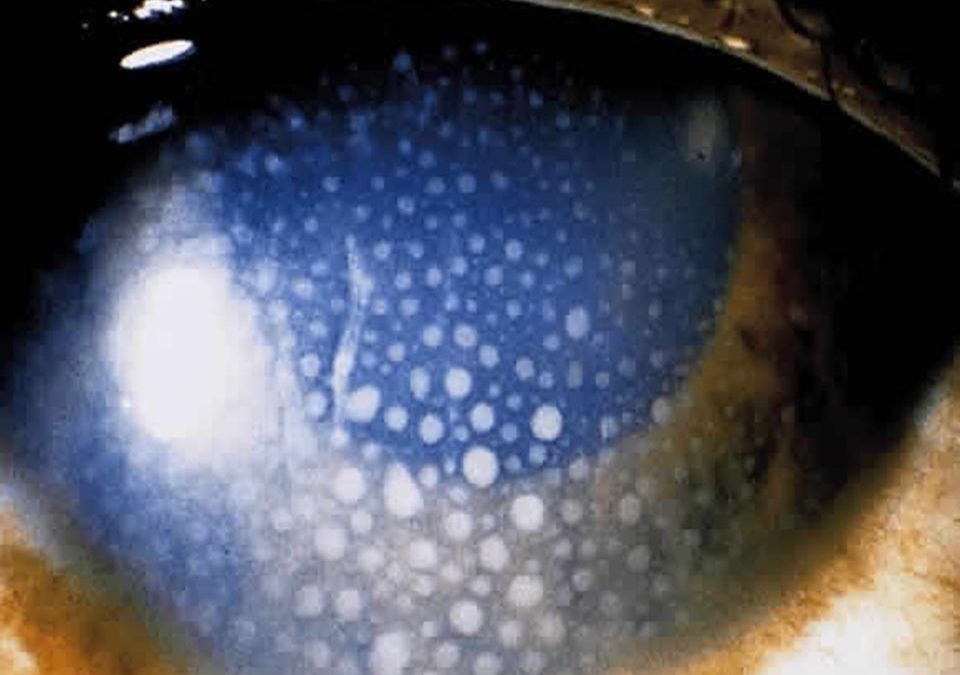Anterior uveitis are a group of pathologies, in which there is inflammation in the anterior chamber of the eyeball or space between the cornea and the iris.
The most frequent uveitis and are usually unilateral and acute, and sometimes they can affect both eyes simultaneously or intermittently.
There are different diseases that can cause them. Highlighting among them rheumatoid arthritis or ankylopoietic spondylitis, are bone diseases with positive rheumatoid factor or HLAB27 positive.
Some pathologies of the immune system such as ulcerative colitis and Crohn’s disease can also cause it. Sometimes it’s the first clue to diagnose. Herpes simplex virus is particularly interested in eyes, being able to cause corneal ulcers and uveitis, with repeated ocular inflammations throughout the life of the patient, affecting visual acuity.
Some uveitis can increase eye pressure, other uveitis have a more larval shape, affecting both eyes at the same time but maintained at a lower intensity and longer.
Patients go to the clinic for symptoms such as: pain on palpation in the eye, red eye, discomfort with light or photophobia and blurred vision if the inflammation is very intense.
Patients who are accustomed to suffer them, come to the consultation to the first discomfort because they have learned to identify it. A correct and early treatment is crucial to avoid later complications such as cataracts, corneal decompensation, glaucoma and pupillary deformity due to synechiae.
The treatment for Uveitis is with very powerful anti-inflammatories such as corticosteroids. At the beginning with frequent appointments it is treated locally reducing the dosage depending on the evolution.
To avoid photophobia, the pupil dilates so that the sphincter of the iris is relaxed with the changes of light, so the patient will feel less discomfort.
The evolution of acute anterior uveitis in treatment is usually very good. Occasionally, treatment with corticosteroids injected subconjunctivally in the eye and / or in the form of tablets is necessary to enhance the effects.
Uveitis of herpetic origin, in addition need antiherpetic gels in the eye, as well as specific antiviral tablets.
Sometimes treatment with eye drops is necessary to reduce eye pressure. Chronic or recurrent uveitis of immunological origin, also need treatment of modulators of the immune system such as Methotrexate, Infliximab or multiple biological drugs that are appearing a few years ago, being its control more complicated.
Patients with uveitis who need cataract surgery, it is essential that the inflammation has been controlled for the last six months, and in this surgery we must be prepared with additional instruments to break the scarring joints caused by inflammation. In the postoperative period, inflammation after the surgical procedure is controlled more than in a normal eye, and the local anti-inflammatories are maintained for longer than usual.


Recent Comments